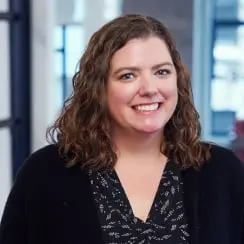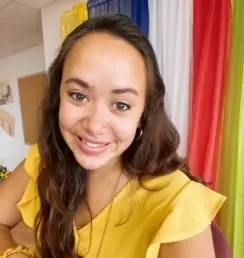 | 1 LU | HSW |
 | 1 LU | HSW |
Date / Time: October 30, 2025 | 3:00 – 4:00 pm
Room: 164-165
Audience: Educators / Teachers
Call to Action: Our session will cover playful learning. Play is not just enjoyment, but a critical pedagogical framework which, when combined with early intervention and community-based design, can provide opportunities to address literacy early and tackle inequity.
Abstract: Literacy plays a significant role in reducing poverty, improving health outcomes, and addressing various inequities due to gender, ethnicity, race, and other factors. Yet 34 percent of students in the U.S. are below basic reading level and another 31 percent below proficient reading level by fourth grade, according to the National Center for Education Statistics. The classroom is not the only place to address this crisis: children only spend about twenty percent of their time in school, and “fun” learning has been shown to have an outsized positive impact on children from low-income families, meaning time outside the classroom is essential. Tackling inequity can start long before children find themselves in a traditional classroom—and long after they leave for the day, the weekend, the summer, and more. A set of three playful learning projects ‘The Nest’, ‘The Hive’, and ‘Seeds and Bees’ are set along Philadelphia’s historic Germantown Avenue and aim to fill that education gap. Anchored through community partnerships with historic properties, each installation was developed in close collaboration with neighborhood partners and advocates to create distinct destinations for learning and play. Each has a variety of interwoven learning elements—including an audio storyteller, games, story starters, and a take-a-book cabinet—that provides interactive play and discovery opportunities to local children and their caretakers. This session will use this set of projects as a jumping off point to explore the framework to identify opportunities for, design, and implement early interventions to improve literacy across communities. Play is not just enjoyment, but a critical pedagogical framework which, when combined with early intervention and community-based design, can provide opportunities to address literacy early and tackle inequity.
Learning Objectives:
Community Engagement
Connecting the educational plan to the vision of the community and the District.

From programming to construction administration, Beth has a wide range of experience across project types including early education, playful learning, K-12, behavioral health, and higher education. She is instrumental in leading KSS’s involvement with playful learning initiatives. Focused on the critical intersection of playful learning elements and design principles, Beth integrates community feedback to create friendly, inclusive spaces for even the youngest of citizens and their caregivers.

Julia is the Program Manager of the Playful Learning Landscapes. As a former play-based learning specialist, Julia is committed to helping support projects that that lead to high-quality education without barriers to success through playful learning best practices. Her philosophy of education has derived from the belief that all children deserve a stimulating social-emotional, playful, and academic environment where every child can grow physically, mentally, emotionally, and socially in a playfully conducive setting.